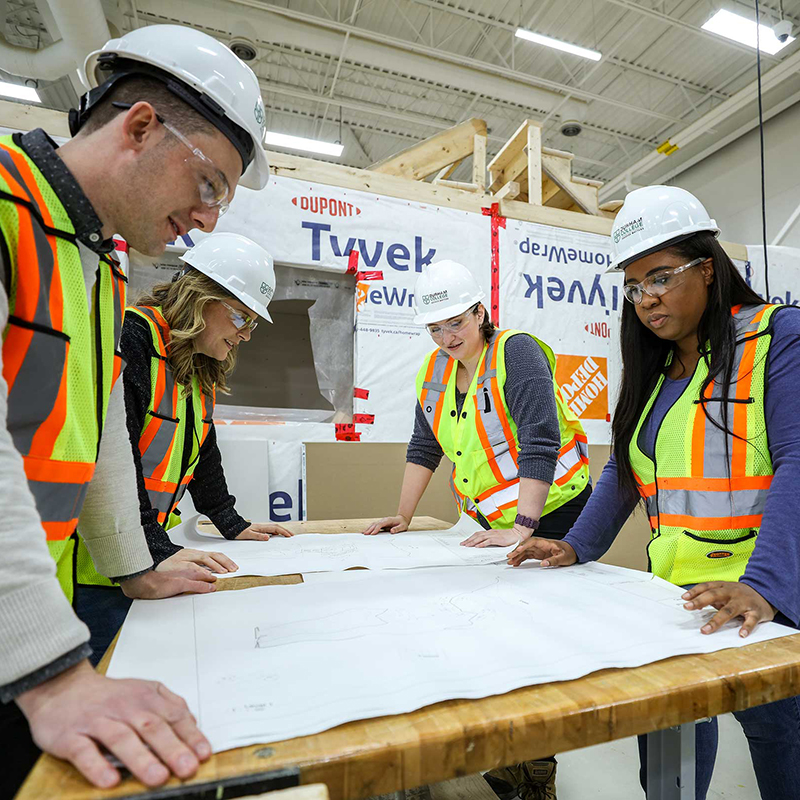DC Construction Management degree responds to industry demand for next generation of workers
Sina Safinia is a faculty member in Durham College’s (DC) Honours Bachelor of Construction Management (HBCM) degree, and with lots of experience both in the industry and in the classroom, he’s still got an ear to the ground. From his contacts, he knows that there’s demand for what this program offers: a strong balance of management courses alongside business, project management, engineering and design. Two field placements (one optional) that provide options for on-site learning are also attractive components.
Now in its third year, this degree program offered at the Whitby campus is attracting a variety of students, from high school graduates to people working in industry who want to uplevel their skills to a career.
HBCM student Britney Reid said she chose the program because she’s always been intrigued by the transformation from concept to functional structure. “I’ve enjoyed learning about the engineering processes behind the construction of unique structures and everyday buildings. I find the coordination and speed of these projects fascinating, and I want to actively participate in this process.”
Safinia notes that the program is attracting students who see themselves in the industry long term. “The program is good for a person who is planning to get into management, who might be starting in project management and site supervision, and then might move into positions as firm managers,” he said. He added that the program is also attractive to employers for its extensive placements at 14 weeks (420 hours), which provides a longer timeframe for mentorship and training.
The opportunity to build skills through multiple courses provides the kind of in-depth learning that will set degree students apart in this industry, said Safinia.
“Analysis skills, research skills, working with teams, learning advanced levels of skills, for example in the four-year program, students learn about research methods, and conduct a research project.”
He adds the program also responds to an industry concern about aging leaders aging and the need for a new generation of managers who can step up. “As managers are getting closer to retirement, there’s not a lot of fresh blood to take their place,” he said.
As a full-time professor in the program, Safinia teaches the Introduction to Construction Management, Business Foundations and Foundations of Project Management courses. Yet the program also brings in part-time faculty still working in industry, including organizations such as Metrolinx and Stantec. Guest speakers from a variety of firms boost that industry connection even further, a combination that students appreciate.
“The professors sharing their real-world knowledge and experiences provides a comprehensive understanding of the industry, and also I appreciate the opportunities for industry exposure through guest lectures, site visits, and upcoming field placements, which help connect the classroom to real-world practices,” said Reid.
The program even organizes field trips, for example this past year to a concrete plant, and regularly to housing charity Habitat for Humanity. “This all helps students build those important connections,” said Safinia.
Pathways are available into the program from DC’s Civil Engineering Technology advanced diploma program, and the degree also opens options for graduate studies, including two already formally established pathways to the master’s level. HBCM also lays the foundation for graduates to pursue certifications from relevant industry bodies such as the Canadian Construction Association, the Canadian Institute of Quantity Surveyors, and the Project Management Institute.
While Reid is still pondering her own pathway, she’s certain that she chose the right training. “The comprehensive knowledge provided by this degree program is extremely valuable. The exposure to various technologies, software, and practices is amazing and will help me stay ahead in this evolving industry. Combining the skills and knowledge from the program with real-world experience, I’m confident I will be able to deliver successful outcomes in my future career.”



